Workshop on Humanitarian Communication Applications:
» Solutions for the next billion people
Special Interest Co-located Event – Presented by IEEE Canada's Humanitarian Initiatives Commitee
Monday, June 11, Full Day (08:00 to 17:00)
Our full day workshop seeks to:
- Give a tutorial on the current state of rural wireless technology with an emphasis on IEEE 802.22 and related standards
- Showcase a wireless network deployed in the Peruvian Amazon to aid in medical treatment of patients in remote rural communities
- Review technical, business and community impact of the current deployment
- Discuss avenues available to achieve sustainable development of wireless networks through interactive round table discussions
- Facilitate multifaceted interaction between participants and speakers representing rural, medical and engineering communities
- Engage new volunteers and facilitate synergy between existing experts to design hardware and software applications for rural telemedicine
Co-Chairs:
- Alfredo Herrera, Ericsson, Canada
- Sawsan Abdul-Majid, University of Ottawa, Canada
- David Wright, University of Ottawa, Canada
Website:
Workshop Program:
- Unlicensed spectrum and Carrier WiFi
Stephen Rayment, CTO Ericsson Carrier WiFi - Making rural communications work
André Brandão, CRC; Michael Christensen, Industry Canada - An Overview of Key Issues in IEEE-Sponsored Data Connectivity Projects
Martin Murillo, IEEE HTC Data Connectivity technical lead; Doug J. Reid - Roundtable on appropriate wireless technology
- Cognitive Rural WiFi Networks for Developing Regions
John Sydor, CRC; Brian Cheung; Imran Hamdad, University of Ottawa - Roundtable on humanitarian context
- Business model for telemedicine in Peru
David Wright, Telfer School of Business, U. of Ottawa - Roundtable on business model
Sessions
Unlicensed Spectrum and Carrier WiFi
- Presenter:
- Stephen Rayment, CTO Ericsson Carrier WiFi
- Abstract:
- This presentation will focus on one of the most pervasive wireless technologies in the world today, Wi-Fi. Wi-Fi is now over a decade old and has evolved to unparalleled levels of price / performance. As such, it is a very compelling technology to provide broadband in many developing markets and provide connectivity to “the next billion people”. This talk will provide a brief overview and history of Wi-Fi technology, and show how it has begun to be adopted by service providers around the world. It will provide deployment examples of how Wi-Fi has been used to enable ubiquitous access in a variety of applications, overcoming the practical challenges of power, mounting and backhaul. A description of the next steps for Wi-Fi technology will give ideas of new applications that can be enabled.
- Presenter Bio:

Stephen Rayment is co-founder and Chief Technology Officer of BelAir Networks; now heads Ericsson's Wi-Fi Technology products. He brings more than 25 years of product and technology experience in the telecommunications industry -- most of that focused on wireless -- and has worked extensively with service providers deploying new wireless technologies. Previously, he led the development of broadband wireless products, the launch of broadband multimedia satcom equipment and the design of the industry's first wireless PBX at Nortel and BNR. Stephen is an accomplished speaker, author of more than ten patents, and is active in industry standardization, having served as an officer of the IEEE 802.11s ESS Networking Task Group. Stephen holds a B.Sc. and a M.Sc. in Electrical Engineering from Queen's University, a Diploma in Administration from the University of Ottawa, is a graduate of the MIT Sloan School's Management of Technology program and is a Senior Member of the IEEE.
Stephen is Vice Chair of the HotSpot 2.0 Marketing Task Group.
Making Rural Communications Work, Techniques and Regulations
- Presenters:
- André L. Brandão, Communications Research Centre – CRC, Industry Canada
- Michael Christensen, Spectrum Information Technologies and Telecommunications – SITT, Industry Canada
- Abstract:
- Some important aspects of policy/regulatory and technical issues for rural broadband are covered in this presentation. Starting from an historical event − the sinking of the Titanic − which triggered the creation of the International Telecommunications Union, the presentation offers a glimpse of the elusive goal of spectrum harmonization around the globe. Voluntary standards versus regulations, and lessons learned from the Broadband Canada: Connecting Rural Canadians are also explored. Moving from policy to technology, the work explains how fourth generation mobile technology is set to become the primary means of communications for emergency responders, disaster relief, safety and security for remote and rural areas. Long-range inexpensive Wi-Fi and cognitive radios within the context of humanitarian communications are also part of the talk.
- Presenter Bio:
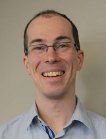
Michael Christensen has worked for Industry Canada, Canada's spectrum regulator, since 1997 in progressively more senior roles. He is currently the manager for Fixed Wireless Planning in Industry Canada's Engineering, Planning and Standards Branch. His responsibilities include the technical regulations and policies that enable the deployment of wireless backhaul systems for the benefit of Canadians. Consistent with the Radiocommunication Act and Canada's international obligations, his group develops technical radio standards and negotiates international treaties and agreements to enable the introduction of fixed wireless technologies and services in Canada.
- Presenter Bio:
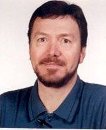
Dr. André L. Brandão has joined the team of research engineers of the Communications Research Centre - Industry Canada since 2001 and currently occupies the position of project leader. He has B.Sc. in Electrical Engineering, M.Sc. in Digital Signal Processing and Ph.D. in Wireless Communications. Dr. Brandão worked for Telebras - Brazilian Telecommunications for 12 years, worked for Siemens Canada as well as for Nortel Networks. He is sectional lecturer at Carleton University in the Faculty of Systems and Computer Engineering.
An Overview of Key Issues in IEEE-Sponsored Data Connectivity Projects
- Presenter:
- Martin Murillo, IEEE HTC Data Connectivity technical lead
- Doug J. Reid
- Abstract:
- There are still places in the world where people do not enjoy telecommunication technologies that we have been using for tens of years. Practitioners have identified that information exchange in remote health posts in these areas can help with various issues, including treatable diseases and avoidable deaths. The presentation will address the challenges in the planning, deployment and local appropriation in a major project carried though an IEEE initiative, the Data Connectivity Solution for Remote Health Posts. Following IEEE's goals in education and betterment of society and humanity, the presentation will also discuss how locals were empowered for the sustenance of the project and the role of IEEE members in the process. The presentation will also address multidisciplinary research and development areas that have identified through this project.
- Presenter Bio:
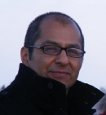
Martin Murillo manages various IEEE HTC Data Connectivity projects in Canada, Peru, and Bolivia. Martin holds a MBA in Community Economic Development and a PhD in Engineering and Applied Science focusing in mathematical modeling and optimization of dynamical systems. He did a postdoc at the Norges Teknisk-Naturvitenskapelige Univesitet, Centre for Ships and Ocean Structures, Trondheim, Norway. Murillo has worked in industry performing multidisciplinary research and leading development teams in state-of-the-art products in RFID, Dedicated Short Range Communications, and energy-efficient security protocols for Wireless Sensor Networks; he has published in the areas of mathematical modeling and optimization, wireless protocols, appropriate technology, and lately, international development. Martin can communicate in Spanish, English, French, Portuguese, and Norwegian.
After working for many years in the United States, Canada, Japan, Norway, Chile, and Bolivia, he has seen the world reality from different angles and decided to focus his efforts towards the use of his knowledge and experience for the development of disadvantaged areas through the application of appropriate communication technology. For that purpose, he has done research at Canada's International Development Research Centre. Recently, as part of his volunteering with IEEE's HTC, he returned from a two and a half-month trip to Peru where he helped manage an IEEE multi-stakeholder, multi-point remote data connectivity project in the Amazon region of Peru.
- Presenter Bio:
Doug J. Reid P'Eng studied at the University of Ottawa in Electrical Engineering earning his BaSC and Masters Degrees. He started his career with Bell Canada in microwave engineering and moved to Bell Northern Research which merged with Nortel. During his 22 years there, areas of design work included digital radio systems, fibre optics, cellular radio (CDMA and UMTS), broadband wireless access (LMDS) and RF network planning. Other endeavours included being a professor at Algonquin College in a full and part time capacity in Telecommunications and RF studies for 20 years. Other work involved carrying out research for CIDA to determine how to deploy WiFi technology in rural as well as underdeveloped areas. This led to the co-authoring of a book to help communities establish wireless networks. In 2006 to present, he has co-founded and continues to teach part time in a new diploma program at Algonquin College ‘ Wireless and Mobility Telecommunications', This program provides RF systems and applications training in Cellular, WiFi, Military and Broadcasting among other areas). Since 2007, he has been working full time at Eion Wireless as the Senior System Architect in broadband wireless access systems with WiMAX and other proprietary systems.
Cognitive Rural WiFi Networks for Developing Regions
- Presenter:
- John Sydor, Communications Research Centre, Ottawa
- Brian Cheung
- Imran Hamdad, University of Ottawa
- Abstract:
- Cognitive Radios are considered to be cutting edge wireless technologies destined for advanced commercial markets. These radio systems are embodied with characteristics such as network self-organization, dynamic channel selection, and the ability to mitigate interference and seek high spectrum efficiencies. Future applications for these radios are foreseen in what are called the TVWS (Television White Space Bands) and within femtocells operating in the cellular service bands. So it may come as a surprise that some of the most advanced work in cognitive radio stems from the need to provide low cost communications to rural environments in lesser developed regions around the world. Rural wireless network deployments are plagued with problems such as deployment and installation by people with only a rudimentary knowledge of wireless; the environments themselves may be polluted by radio interference or subject to highly changing propagation conditions and system loading requirements. Such problems can be alleviated by the use of cognitive radio.
The talk given by John Sydor will discuss a novel wireless technology developed by the Communications Research Centre. CORAL (COgnitive RAdio Learning) platforms are WiFi routers that have their operation modified by the addition of an intelligent control ‘shell' that allows the wireless router to assume the form and function of a cognitive radio that conforms to the ITU definition of this technology in that it has the facility to sense, learn, and adapt to the radio environment. Originally developed to support the study and investigation of cognitive radio techniques, this technology has caught the attention a numerous researchers seeking low cost solutions to the wireless access problems of lesser developed regions. CORAL technology is now being modified and set for deployment in India, with interest from Malaysia, Brazil, and Eastern Europe. These deployments will likely form the world's first deployments of cognitive radio technology and in doing so, address issues related to first world cognitive radio problems associated with Femtocell, TVWS, and evolving wireless networks. - Presenter Bio:
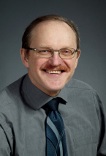
John Sydor works at the Communications Research Centre (CRC) in Ottawa as the research manager of the Research Broad Band Wireless (RBBW) Group which has developed a number of novel wireless communications technologies for commercial and government applications. He has published over 40 papers and holds 7 patents related to wireless devices and systems. He helped establish a number of successful wireless companies in Canada and has worked closely with Canadian industry in the development and transfer of wireless technology. He has acted as a technical consultant on the creation of new regulations and policy for Canada and the ITU, principally on issues related to the ISM band interference control. He contributed to the writing of the IEEE 802.16/16h (WiMAX) standards for local and metropolitan area wireless networks. Currently he is Canada's representative on Europe's COST-TERRA IC0905 initiative that is helping define cognitive radio regulations and policies. For over 10 years his RBBW group at CRC has pioneered the development of some of the world's first ISM band cognitive radio technology for urban and rural wireless applications (see www.crc.ca/coral) , work which currently involves research collaborations with a eleven Canadian, European, and Indian universities and technology development agencies. RBBW has close ties to wireless companies, universities, and service providers and facilitates the bridging of technology between the academic, government, and private sectors. John is a professional engineer with a B.Ap.Sc from the University of British Columbia and has undertaken graduate studies at the Carleton University and the University of Ottawa. His current research interests are on rural cognitive WiFi networks for developing regions, self-organizing radio networks, and dynamic spectrum access.
- Presenter Bio:

Brian Cheung is a consultant on Corporate Social Responsibility (CSR) and business processes for International Development. A graduate from the University of Toronto's Engineering Science--Biomedical program, Brian has had a varied and spectacularly non-technical career. He has worked as a CSR & International Affairs Officer for the Population and Community Development Association (www.pda.or.th) — one of Thailand's largest and best known NGO's — vas well as a Commercial Foreign Service Officer for Canada's Department of Foreign Affairs & International Trade (DFAIT). Brian's involvement with Engineers Without Borders (www.ewb.ca) has spanned over 9 years and he is currently an executive member of the local EWB Ottawa chapter.
- Presenter Bio:

A university of Ottawa graduate and local resident, Imran Hamdad believes in the power of words and of community organizing. Having grown in a household that prized debates, books, opinions and open minds – his parents taught him the value of education, as well as the importance of social justice and equity. Inspired from an early age to serve others as a way of living; it has led Imran to volunteer abroad with Canada's Engineers without borders. Working in Africa proved to be a profoundly humbling experience. With multi-cultural experience and having chosen to pursue studies in Science and Engineering, he is aware of the necessity to connect and integrate different bodies of knowledge and realities into a cohesive viewpoint. With a passion for education and sharing in groups, he aims to merge technology's use with the practicalities of human living here and abroad – ensuring a sustainable future for all generations and peoples.
“Coming together is a beginning, staying together is progress, and working together is success.” – Henry Ford
- Presenter Bio:
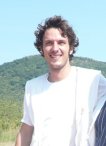
After a degree in physical geography,
Antoine Maranda decided to use is broad knowledge and diverse experiences in non-profit organizations. He first started by founding and coordinating a small non-profit organization in the University du Québec à Rimouski that was working on the food problematic that encounter certain university students. He then, joined Médecins Sans Frontière in the summer of 2010 to start as an all-round logistician in a basic health care program towards a refugee population in Central African Republic. Since then, he got promoted as a coordinator of water and sanitation programs and worked in Democratic Republic of Congo during a cholera epidemic. He spends his time between contracts with MSF to be socially and politically active in his community and work closely with MSF Canada Association to share their work and objectives with the population.
Business model for telemedicine in Peru
- Presenter:
- David Wright, Telfer School of Business, University of Ottawa
- Abstract:
- The developing world is littered with technology that was donated by well-meaning NGOs, but is now non-operational due to lack of maintenance. In order to avoid this future for the HTC TeleHealth network in Peru, this paper presents a business plan for a local entrepreneur to set up a company to maintain and expand the network, incented by profits from its operation. Sources of revenues and costs are estimated together with a governance model for the company that ensures responsible operation and continued expansion of the network to more rural communities in the Alto Amazonas region. The aim is to ensure maintenance and expansion of the current network with minimal additional funding from IEEE and other donors. The presentation is open-ended and invites participants to share their own ideas on business models for this situation during round table discussions.
- Presenter Bio:
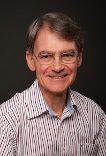
David Wright combines an Engineering PhD from Cambridge University, UK, with his current position as Full Professor in The University of Ottawa, Telfer School of Management to provide a business perspective on Information and Communications Technology, ICT, including its use to facilitate rural development and environmental sustainability. He has worked with standards development organizations on new international standards on sustainability. At the University of Ottawa, Dr Wright provides undergraduate and graduate courses in Corporate Social Responsibility and Environmental Entrepreneurship.
Dr Wright is cited in
- Who's Who in the World
- Who's Who in Canadian Business
- Who's Who in Science and Engineering
- Who's Who in Finance and Business
- Who's Who in Distance Learning
His recent publications are in the areas of Corporate Social Responsibility and Environmental Entrepreneurship.








